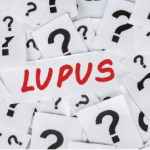“Contemporary management of MODS is entirely supportive, and no specific therapeutics have been shown to be effective in reducing incidence or severity,” the researchers say.
Summing up, Dr. Shepherd concluded that the new work in the hyperacute phase “identifies this period as crucial for understanding how MODS develops after trauma. Our findings provide exciting opportunities for developing new therapies that help protect organs after major injury.”
ad goes here:advert-1
ADVERTISEMENT
SCROLL TO CONTINUE
Reference
- Cabrera CP, Manson J, Shepherd JM, et al. Signatures of inflammation and impending multiple organ dysfunction in the hyperacute phase of trauma: A prospective cohort study. PLoS Med. 2017 Jul 17;14(7):e1002352. doi: 10.1371/journal.pmed.1002352. eCollection 2017 Jul.


